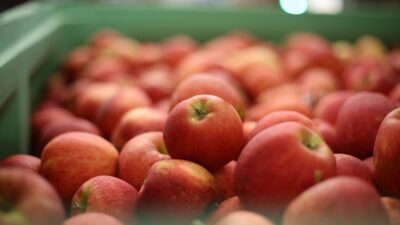In recent years, the organic food movement has gained significant traction, drawing attention to the benefits of a more natural approach to agriculture. As consumers become increasingly aware of the potential impacts of synthetic pesticides and fertilizers on health and the environment, the demand for organic products has surged. But what exactly goes into organic farming, and how does it differ from conventional methods? This article delves into the science behind organic food, exploring its production processes, benefits, and nutritional aspects.
Understanding Organic Farming
At its core, organic farming adheres to a set of practices designed to promote ecological balance and biodiversity. Unlike conventional agriculture, which often relies heavily on synthetic fertilizers and pesticides, organic farming emphasizes natural inputs. This includes the use of compost, natural pest predators, and crop rotation to maintain soil health and manage pests.
Key Principles of Organic Farming:
-
Soil Health: The foundation of organic farming lies in preserving and enhancing soil fertility. Organic farmers implement practices such as cover cropping, green manures, and composting to enhance soil structure and microbial activity, contributing to healthier plants.
-
Biodiversity: By rotating crops and planting a diverse array of species, organic farms can reduce pest outbreaks and encourage beneficial insects. This biodiversity is not only critical for ecosystem health but also contributes to product resilience.
-
Natural Pest Management: Instead of synthetic pesticides, organic farmers utilize integrated pest management (IPM) techniques. This includes biological controls (like introducing beneficial insects) and cultural practices (like crop rotation) that help minimize pest damage while avoiding harmful chemicals.
- No Synthetic Inputs: Organic standards prohibit the use of synthetic fertilizers and pesticides. Consequently, organic farms rely on natural alternatives that are less harmful to the environment, promoting sustainable growth.
The Nutritional Profile of Organic Food
Numerous studies have compared the nutritional content of organic and conventional food, with mixed results. However, many research efforts have indicated that organic food may offer several nutritional advantages.
Key Nutritional Benefits:
-
Higher Antioxidant Levels: Some studies suggest that organic produce contains higher levels of antioxidants and phytochemicals, which are believed to be beneficial for human health. The stress that organic plants face from pests may trigger a stronger synthesis of these compounds.
-
Healthy Fats in Animal Products: Organic dairy and meat products often come from animals that are grass-fed and free-range. These animals typically have diets that result in higher levels of omega-3 fatty acids compared to their conventionally raised counterparts.
- Lower Residue of Harmful Chemicals: While both organic and conventional foods can carry contaminants, organic foods tend to have lower levels of pesticide residues. For consumers looking to minimize their exposure to synthetic chemicals, organic food provides an attractive option.
Environmental Impact
Choosing organic over conventional food isn’t just a personal health decision; it also has broader environmental implications. Organic farming promotes sustainable agricultural practices that support soil health, increase biodiversity, and reduce pollution.
Environmental Benefits Include:
-
Reduced Chemical Runoff: Organic farming avoids harmful chemicals that can leach into waterways, protecting aquatic ecosystems and human water supplies.
-
Climate Change Mitigation: Organic practices often encourage carbon sequestration, helping to mitigate climate change. Healthier soils can store more carbon, reducing the overall CO2 in the atmosphere.
- Biodiversity Conservation: Organic farms are typically more diverse than conventional farms, providing habitats for wildlife and helping to preserve endangered species.
Conclusion
The shift from pesticides to nutrients embodies the essence of organic food production. Through sustainable practices, organic farming not only seeks to protect consumer health but also nurtures the environment. By prioritizing biodiversity, soil health, and chemical-free methods, organic agriculture represents a holistic approach that resonates with both health-conscious consumers and environmentally-minded individuals.
As the demand for organic products continues to grow, understanding the science behind these practices is essential—not only for making informed food choices but for participating in a larger movement towards a healthier planet. Whether you’re a lifelong advocate for organic products or a curious newcomer, embracing organic food can be a delicious way to support sustainable practices and contribute to the well-being of both yourself and the environment.


